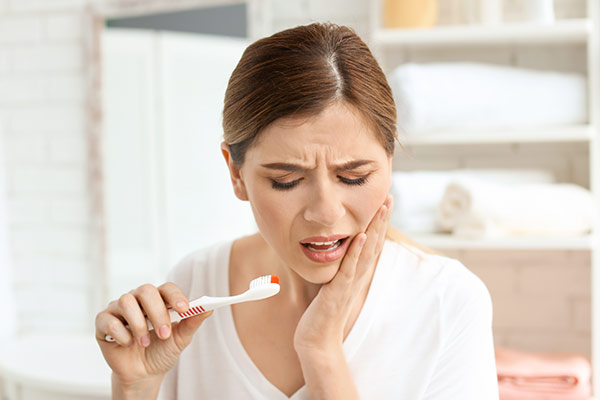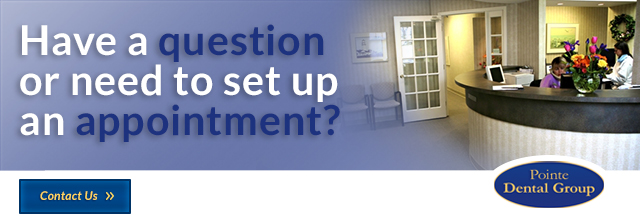
You brush your teeth every day. You even floss! But after visiting your dentist, they told you that you have cavities, gum disease or worse. How could that be? It’s possible that your dental care routine has fallen victim to one or more of the most common dental mistakes that affect thousands every year.
The best way to avoid them is to know what they are. Read on and learn how your daily activities could be undermining your dental health.
Smoking
You can’t have a healthy mouth if you’re a smoker. In addition to cosmetic issues like stained teeth, smoking causes a laundry list of negative health effects – many of which impact your teeth and gums. It’s common for smokers to develop gum disease. More concerning though is that smoking hinders your immune system, so your body has a harder time fighting the bacteria that cause gum disease in the first place.
No matter how well you brush, floss and visit the dentist, a daily smoking habit is a sure way to do long-term damage to your health.
Grinding Your Teeth
Stress is unavoidable. But chronic stress can lead to teeth grinding, also known as bruxism. Even if you don’t notice grinding during the day, it can happen while you sleep! The dental impacts of grinding your teeth are:
- Heightened sensitivity
- Jaw pain
- Chronic headaches
- Enamel wear
- Damaged crowns or veneers
Many of the effects of teeth grinding leave your mouth vulnerable to decay or disease. This is due to the weakening of your enamel and the wearing down of your tooth structure.
If you think you’re experiencing bruxism, don’t delay! Schedule an appointment for an exam with your dentist. They can identify the signs of grinding and find solutions to help protect your teeth.
Delaying Your Dentist Appointment
It’s difficult to keep track of the health of your teeth and gums. This is why even your dentist has regular dental exams! You may consider your dental care routine to be perfect, but it’s possible that you’re missing something important.

Most patients find it easy to identify decay or gum disease. Signs like bleeding gums, tooth aches or tooth sensitivity are obvious indicators of a problem. But not every mouth reacts the same, and it’s possible for gum disease to progress for months without any obvious symptoms. Your dentist can identify these problems, but you won’t always catch them early.
Gum disease and other health issues with your mouth are most easily treated the earlier they’re noticed. Visiting the dentist twice a year is the best way to keep your mouth health. Don’t make the common dental mistake of putting off your appointment!
Brushing After Acidic Foods or Drinks
Do you like citrus fruits or soda? Avoid brushing after eating them! The acids in these foods will temporarily weaken your teeth and leave the enamel at risk for further damage if you brush immediately afterwards.
Many well-meaning people will brush after drinking soda, assuming it will help avoid risks associated with the carbonation and acid. Instead, try swishing some water in your mouth after drinking or eating foods that are highly acidic. You’ll wash away much of the acidic residue and then you can brush your teeth 30 minutes to an hour later safely.
Brushing Too Often or Too Hard
Did you know you can negatively affect your teeth by brushing? There are two common ways that many people do harm to their mouth with their toothbrush:
Brushing Too Hard – A toothbrush is firm and rough. Using too much force can work down your enamel in the same way that grinding does. Take care to use some force, but not so much that your arm gets tired or that your teeth or gums hurt just from the pressure.
Brushing Too Often – You can also brush too often, which has the same effect of wearing away at the enamel. You rely on enamel to protect your teeth from contaminants, so stick to brushing twice per day for a total of two minutes each time.
Not Brushing Your Sensitive or Bleeding Gums
Two common signs of gingivitis are sensitive gums or gums that bleed when you brush. The discomfort of brushing or the fear that blood means you’re doing damage to your gums can discourage some from continuing their brushing routine. But you need to keep brushing!
Gum disease can be fought at home by continuing to remove plaque as it builds on your gums. If blood or discomfort leads you to stop brushing, it will only get worse.
If you can’t deal with the pain of brushing sensitive gums, schedule a dentist appointment as soon as possible. A dental cleaning will help remove any bacteria, and they can give you tips for restoring your gums to good health.
Not Replacing Your Toothbrush
Do you know how often you’re supposed to replace your toothbrush or brush head? The American Dental Association recommends that you change them at least every three to four months. If you aren’t following this recommendation, you may be making another common dental mistake.
As you use your toothbrush, the bristles become frayed and less effective. An older toothbrush can also be a breeding ground for bacteria – which undermines the purpose of brushing in the first place!
While the ADA recommendation is around three months, pay close attention to your toothbrush. If it looks worn earlier than that, you may need to replace it sooner. This could also be an indication that you’re brushing too hard, too often or for too long.
Schedule an Appointment Today!
Whatever your dental needs, we’re here to help. If you have questions, or would like to speak with one of our dentists in SE Michigan about your dental options, contact us!
Schedule an appointment with us today! New patients can receive FREE comprehensive exam and consultation, plus a full panoramic x-ray with a paid cleaning procedure (a $200 value)!
Grosse Pointe Farms: (313) 881-2480
Shelby Township: (586) 803-8300
Don’t miss a thing! Connect with us on Facebook.
